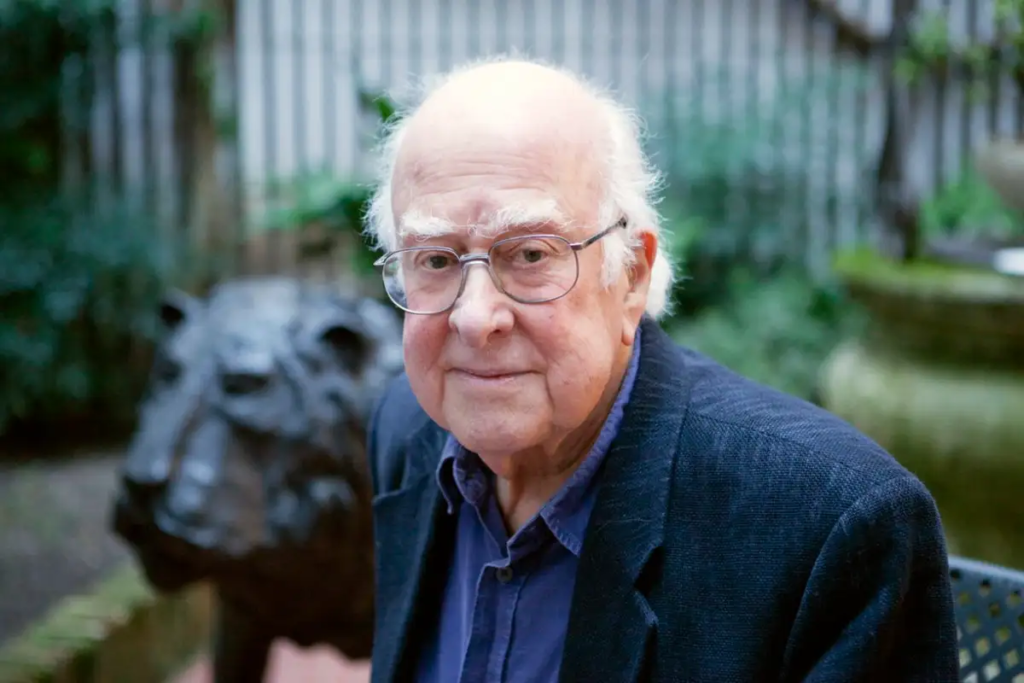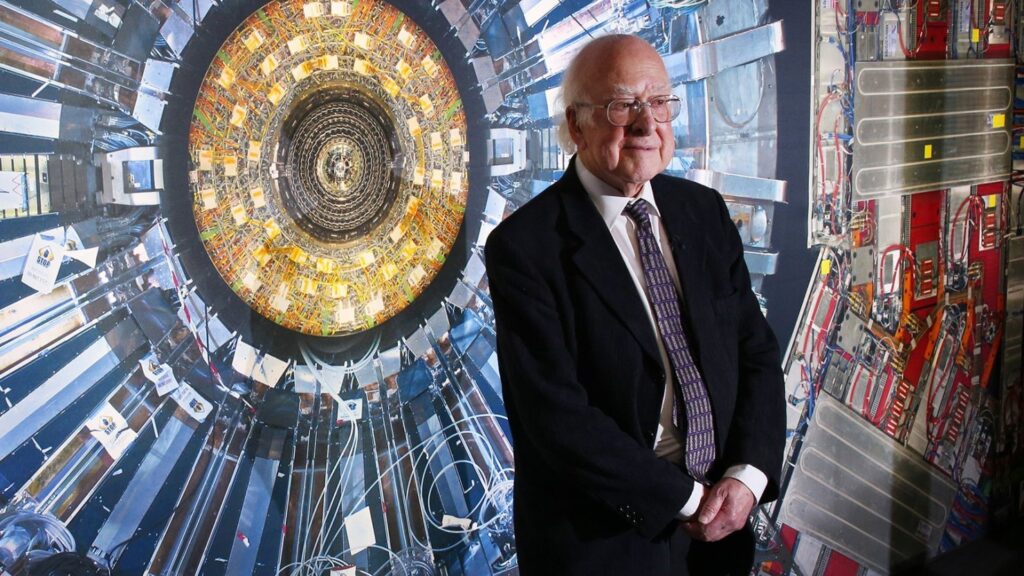The world of science bid farewell to one of its most distinguished figures when physicist Peter Higgs passed away at the age of 94. The University of Edinburgh, where Higgs had a profound impact as a professor, announced his peaceful passing on Monday after a brief illness.
Higgs will forever be remembered for his groundbreaking contributions to theoretical physics, particularly his theory of an elusive particle, later named the Higgs boson, which was vindicated by a Nobel Prize-winning discovery in 2012. This discovery, made at the CERN research center near Geneva, marked a pivotal moment in our understanding of the cosmos and propelled physics into realms once deemed the realm of science fiction.
Reflecting on the monumental discovery, Higgs expressed a mix of satisfaction and astonishment, remarking that the confirmation of his theory came nearly five decades after its conception, a timeline he never anticipated witnessing. His modesty and humility were evident as he acknowledged the profound impact of his work on our understanding of the universe.
Born from a humble background, Higgs initially struggled in the physics laboratory during his school years, gravitating towards mathematics and chemistry instead. However, inspired by luminaries like quantum physicist Paul Dirac, he eventually found his calling in theoretical physics, where his genius would truly shine.

The crux of Higgs’ theory lay in unraveling the mystery of mass acquisition by fundamental particles, a puzzle that had long confounded physicists. His proposition of the Higgs boson and the accompanying “Higgs field” offered a solution that revolutionized our comprehension of particle physics.
Despite facing initial skepticism, Higgs persisted in his pursuit, culminating in the publication of his seminal paper in 1964. This paper, though initially rejected by some, laid the groundwork for what would become one of the most significant discoveries in modern science.
The journey towards confirming the existence of the Higgs boson was arduous, spanning decades of experimental efforts and technological advancements. It wasn’t until the construction of the Large Hadron Collider at CERN that scientists were equipped with the tools necessary to detect this elusive particle.

The momentous announcement of the Higgs boson’s discovery in 2012 was met with widespread acclaim and jubilation within the scientific community. Higgs, alongside his collaborator François Englert, was awarded the Nobel Prize in Physics the following year, a well-deserved recognition of their groundbreaking contributions.
Beyond his scientific endeavors, Higgs was known for his principled stance on issues ranging from nuclear disarmament to scientific ethics. He remained steadfast in his beliefs, even as his work catapulted him into the global spotlight.
In his personal life, Higgs cherished his family and maintained a sense of humility despite his towering achievements. His reluctance toward media attention and his nonchalant response to news of his Nobel Prize serve as a testament to his unassuming nature.
As we mourn the loss of Peter Higgs, we also celebrate his remarkable legacy—a legacy that transcends the boundaries of scientific inquiry and inspires future generations to push the boundaries of human knowledge. In his own words, Peter Higgs leaves behind an “incredible thing” that has forever altered our understanding of the universe.
Sources
- https://edition.cnn.com/2024/04/09/world/peter-higgs-physicist-nobel-winner-dies-scn/index.html
- https://www.bbc.com/news/science-environment-68774195#:~:text=Peter%20Higgs%2C%20a%20giant%20of,in%20the%20city%20on%20M
- https://www.scientificamerican.com/article/peter-higgs-a-giant-of-particle-physics-dies-at-94/
- https://www.newscientist.com/article/2426199-peter-higgs-physicist-who-theorised-the-higgs-boson-has-died-aged-94/




